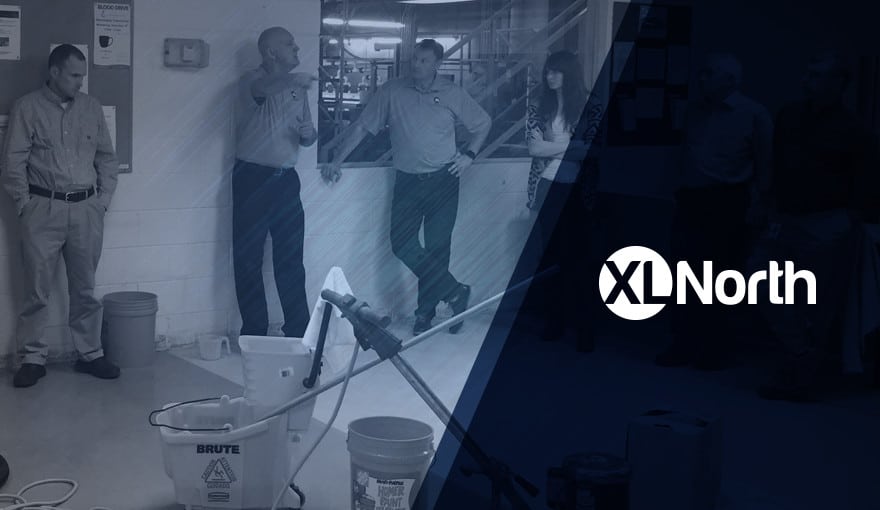Company culture has been a trending topic in the corporate arena for a few years now, and it’s not exclusive to large corporations and the white collar professional. The “culture” of a company is essentially the organization’s personality. Company culture consists of many elements, including your organization’s mission, work setting, ethics, expectations, values, and goals. For employees, company culture defines the environment in which they work. It is a leading reason influencing a new talent’s decision on whether or not they should come onboard. Yet, it’s also a primary factor in what causes experienced staff to jump ship for another company or self-employment.
Not only is company culture important to employees, it’s significant to employers. Workers who fit in with your company culture are likely to be happier and more productive. Employee retention rates also improve with a strong company culture.
XLN’s Bill Luallen recently spoke with three floor care industry professionals who take time to focus on the culture created within their organizations. Mark Cannon, Bob Deweese, and Tom Moore each believe that company culture, in the maintenance industry, begins by supporting techs.
Mark Cannon, Director of Operations, APEX Surface Care
Company culture, for us at APEX Surface Care, is a bottom up mindset. It starts with our front line technicians who are out every night earning the revenue for the company, and allowing the company to sell, grow, and profit. We try to motivate them, as well as support them to do their best, and clear obstacles to execution.
Here are some of the elements we use to engage technicians:
- Monthly ‘All Tech’ Meetings with Specific Agendas
Includes:- Food and beverages provided to encourage dialog and fellowship
- A safety section to encourage safety as a first thought
- A review of Key Performance Indicators (KPIs), including callbacks, complaints, missed appointments, over time
- A customer service segment focused on best customer service practices
- A training review of one or two techniques
- A review of the state of the company review (sales)
- A discussion of upcoming job load
- An OFI section, where we discuss ‘Opportunities for Improvements’ in our service delivery, behavior and communication
- An opportunity to share recent successes
- Random Acts of Appreciation
Shout outs from customers are relayed, and posted for recognition with their peers and co-workers - Tech Bonus Program
Based on net profitability, and recognizes tenure, position, performance, and group behavior - Quarterly Events
- Cook Outs
- Bowling Tournaments
- Specialized Training
- Team Building Events
- Organization
We try to establish sensible business practices and encourage adherence to the standards to help minimize chaos at loading time - Technology
We have invested a lot of time, energy, and money into a paperless work order system that allows our techs to clock in/out and access all critical elements of work orders. This system also supports our scheduling, invoicing, purchasing, and critical business reporting. Although these are back end items to the technicians, they support the technician by providing clear and timely schedule updates, along with mobile access to their schedules and work. - Employee Emergency Assistance Fund
We review request from techs in need, allow them to borrow money from a set account, and pay it back on favorable terms.
Bob Deweese, Operations Manager, Rite Rug
At Rite Rug, we strive to keep the job a place where people want to work and show up each day. For me, company culture is simple. I don’t micro-manage staff. If tough or challenging jobs arise, however, I’ll be there alongside our techs, willing to get my hands dirty. Everything gets a “face in the mirror” test. Asking, “Would I want to work for Rite Rug under the conditions I’ve created?” If the answer is no, then changes need to be made.
It’s also important to empower supervisors. They are the eyes and ears, and they understand the dynamic of the technicians. We have monthly supervisor meetings to channel information back and forth, and provide us the ability to fine tune best practices. With a tightening work force, Rite Rug embraces labor from many different cultures, working around language and cultural barriers to build a cohesive team.
Due to a very large team of technicians that cover both day shift and evening shifts. We hold company wide technician meetings twice a year, providing food and drink along with instructional time, and an informative review of overall performance. Customer accolades are recognized daily with shares and posts to the whole organization. We recognize national holidays, and gather the whole team for an end of year holiday dinner annually. We’ve also implemented a four day work week, allowing each tech three days off for more consistent free time. Our business model works best when techs are getting 40 hours per work week. The management teams is always dedicated to making sure enough work is available to meet that goal.
Tom Moore, CEO, ECO Logic Limited
It may be viewed as culture, but at ECO Logic Limited it’s characterized more as the spirit in what we, as a company, are trying to deliver. We work hard to understand cross cultural communication, and at our core we respect and trust our technicians. Our team believes in what we are doing. They get thanked for doing a great job, are provided a living wage, and are appreciated throughout the organization. Management should always be looking for ways to say thank you because techs are the first line of a successful business. Without them, you can’t deliver.
We also offer a very flat structure that allows our newest hire to talk directly with our most senior people. Additionally, teams are blended on site, so at any given time you will not find the same two, three, or four techs going out repeatedly night after night with each other. It helps to unite as a larger team. We also reward all our staff for stepping up and doing things right.
Another goal with our staff is to help build them up to be better citizens. Last year, through our “Clean for Charity” program, we donated 37 new bikes to foster kids. The bikes came unassembled and needed to be put together, so we posted a note on our team board asking for volunteers to assist. We had a near 100% participation from our techs. They came in, had a party, and built the bikes, all on their own time. After one of our annual summer outings with staff and family, we held a softball game. This was an interesting dynamic mix, with peers and co-workers discussing balls, strikes, safes, and outs. It was a success! Employees had so much fun playing together that they started their own team that plays in a league on Sundays. Our annual Christmas party becomes a competitive bowling event, with prizes going to random teams of office and tech staff mixed together. The excitement builds each year, like the NFL draft, as everyone prepares for the announcement of the teams.
An incentivized ESL program has also been successful within our company. Speaking and comprehending English benefits the company and our techs. Many studies conclude that being literate in English leads to significantly higher earnings. We partnered with Roxbury Community College to develop a curriculum tailored to our business. Any technician that passes the English proficiency is eligible for an additional $1.00 per hour on the minimum rate. Those that don’t pass have the opportunity to take onsite ESL classes provided by the college. We pay the staff for the time they spend in class. We currently receive a grant from the Massachusetts Department of Workforce and Training Development to fund the cost of the curriculum development and teaching of the classes.
Staff retention is also key and is dependent on how you treat your people. Work with them to understand problems, be supportive, bend a little, but stay firm in the belief of your core message around service delivery. In turn, the company culture will evolve.
Download this article in PDF format!
Would you like a PDF version of this article? It’s available for download. Get it today! No form submission required.


